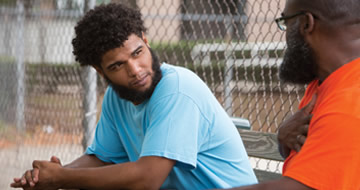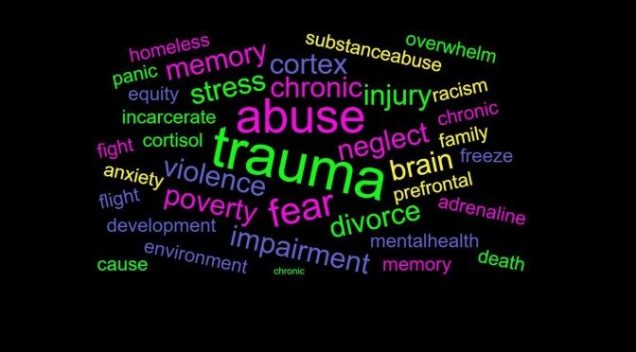Trauma: The Event and the Aftermath

Cady Balde
August 15, 2022
Trauma
Trauma is defined as a significant emotional response to an event or series of events that induces stress. Depending on the event, trauma is comprised of three main categories: acute, chronic, or complex. Acute trauma is the result of a single incident, such as witnessing a shooting. Chronic trauma is categorized as continuous or prolonged, like domestic violence. Complex trauma is the combination of multiple events which is commonly associated with child maltreatment. Trauma is individualized; therefore, it affects every person differently—even in the aftermath. Some individuals who’ve experienced a traumatic event can exhibit psychological symptoms such as denial or emotional avoidance. Helpful aids such as cognitive behavioral therapy (CBT) can help regulate emotional responses. However, others can experience more severe side effects like withdrawing from others, suicidal thoughts, or developing post-traumatic stress disorder (PTSD) and substance abuse disorder.

PTSD
The Mayo Clinic defines PTSD as a “mental health condition that’s triggered by a terrifying event — either experiencing it or witnessing it. Symptoms may include flashbacks, nightmares, and severe anxiety, as well as uncontrollable thoughts about the event” (Mayo Clinic, 2018). A study revealed that nearly “one-third of people exposed to trauma develop PTSD. Men report higher incidences of trauma, but women are more likely to develop PTSD” (Mcmahon, 2018). A sad dichotomy for those suffering from PTSD is the destructive pathway to substance abuse. Those suffering from PTSD often resort to drugs or alcohol to gain control, self-medicate, and ultimately cope. Psychology professor, Matthew Tull, revealed that 46% of individuals suffering from PTSD will also struggle with alcohol or drug use disorders (Arrow Passage Recovery, 2021). Situations like these, where an individual is seemingly stuck in a never-ending cycle of trauma, can render them helpless and leave friends and loved ones confused.
Recovery

A government program that offers a lending hand to such individuals is Washington, D.C.’s MyRecoveryDC initiative. MyRecoveryDC collaborates with certified peers who have completed their own recovery process with District-based residents who are just starting their recovery journey. This program aims to break down stigmas surrounding PTSD and the subset of related issues that follow, such as drug and alcohol abuse disorders. MyRecoveryDC serves as the initial hard conversation for someone struggling with addiction to someone struggling. Michelle, a certified DC Peer Counselor, shared her long-time struggle with alcohol abuse, stating, “None of us can do this by ourselves.” If we could, then we probably would have. But that’s not how it works “(D.C. Department of Behavioral Health, 2021). Support is a vital component of overcoming traumatic events and disorders that they accompany.
References
Arrow Passage Recovery. (2021, April 29). Complex PTSD and Addiction | How is C-PTSD Different? | Arrow Passage. Arrow Passage Recovery Center. Retrieved August 15, 2022, from https://www.arrowpassage.com/complex-ptsd-and-addiction/
D.C. Department of Behavioral Health. (2021, June 3). DC Health Launches MyRecoveryDC to Raise Awareness of Addiction Treatment Services, Share Inspirational Stories of DC Residents in Recovery. DOH. Retrieved July 17, 2022, from https://dchealth.dc.gov/release/dc-health-launches-myrecoverydc-raise-awareness-addiction-treatment-services-share
Mayo Clinic. (2018, July 6). Post-traumatic stress disorder (PTSD) – Symptoms and causes. Retrieved August 15, 2022, from https://www.mayoclinic.org/diseases-conditions/post-traumatic-stress-disorder/symptoms-causes/syc-20355967
Mcmahon, D. (2018, December 17). When Trauma Slips into Addiction. The Imprint. Retrieved August 15, 2022, from https://imprintnews.org/child-trauma-2/when-trauma-slips-into-addiction/32462#:~:text=Trauma%20increases%20the%20risk%20of,to%20cope%20with%20traumatic%20events.
One comment
Hi Cady,
Seeking help for a traumatic incident or event and subsequent PTSD is so incredibly important as we have learned. Unresolved trauma can lead to so many detrimental behaviors such as substance abuse or inappropriate behavioral reactions, both of which can lead one to prison.
MyRecoveryDC sounds like a wonderful program, especially given the fact that the counselors have been through the same type of issues and can relate to the individuals seeking help before they end up entwined in the criminal justice system.
Great information!
Jen
Comments are closed.